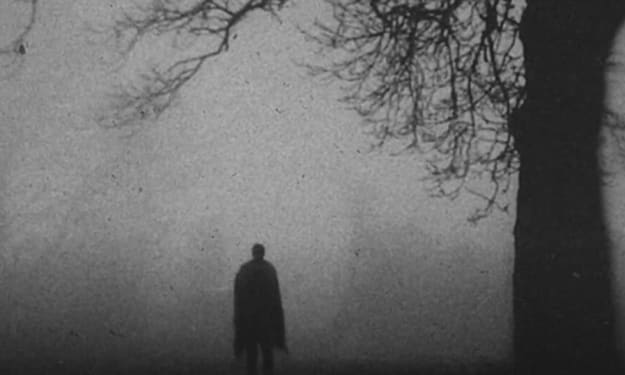Book Review:"1984" by George Orwell: A Haunting Dystopian Masterpiece
An Unforgettable Journey into a Totalitarian Nightmare

"1984" by George Orwell is a seminal work of dystopian fiction that has left an indelible mark on the literary landscape since its publication in 1949. Orwell's haunting portrayal of a nightmarish totalitarian society, where Big Brother wields absolute power and individual freedom is but a distant memory, continues to captivate readers with its chilling vision of the future. Through the eyes of protagonist Winston Smith, Orwell invites us into the dystopian world of Oceania, where the Party's pervasive control crushes dissent and manipulates reality. As we delve into the novel's themes of surveillance, thought control, and the fight for individual freedom, we are confronted with a stark reflection of the potential consequences of unchecked power and the fragility of truth.
The Dystopian Landscape of Oceania
Set in the fictional superstate of Oceania, "1984" introduces us to a world dominated by the iron fist of the Party and its enigmatic leader, Big Brother. The Party's reach extends into every aspect of its citizens' lives, employing a vast surveillance network and the Thought Police to quash any hint of dissent. The manipulation of language through Newspeak and the Ministry of Truth's revisionist history highlight the Party's insidious tactics in controlling reality. Oceania's bleak and oppressive atmosphere serves as a powerful backdrop for Orwell's exploration of totalitarianism and its devastating impact on individual liberty.
Themes of Totalitarianism and Thought Control
At the heart of "1984" lies a searing critique of totalitarianism and the insidious nature of absolute power. Orwell depicts a regime that thrives on the suppression of free thought and individuality. The Thought Police's relentless pursuit of "thoughtcrime" instills fear, breeding a society where even personal reflections are grounds for punishment. The Party's manipulation of history and the imposition of Newspeak demonstrate the lengths to which a totalitarian state will go to control the minds of its citizens.
Orwell's portrayal of thought control through the character of Winston Smith reveals the dangers of complacency in the face of attempts to silence dissent. As Winston grapples with the desire for freedom and the fear of being caught, readers are reminded of the fragility of truth and the power of language in shaping consciousness.
Relevance in Contemporary Society
Despite being written over seven decades ago, "1984" remains eerily relevant in the contemporary world. In an era of mass surveillance, digital communication, and the spread of misinformation, the novel's themes strike a chord with modern readers. The prevalence of surveillance technologies and the erosion of privacy are unsettling parallels to Oceania's all-seeing eye of Big Brother.
Moreover, the manipulation of information and the rise of "fake news" resonate deeply in today's world, underscoring the need for critical thinking and media literacy. Orwell's cautionary tale serves as a stark reminder of the importance of protecting democratic values and the dangers of surrendering to authoritarian impulses.
The Fight for Individual Freedom
Despite the suffocating oppression of Oceania, "1984" celebrates the indomitable spirit of individual freedom. Through Winston's clandestine relationship with Julia and their acts of rebellion, the novel showcases the resilience of the human spirit against all odds. Winston's refusal to betray his beliefs, even in the face of torture and brainwashing, embodies the power of personal integrity and the quest for truth.
Conclusion
"1984" by George Orwell remains an essential and enduring work of literature, serving as both a cautionary tale and a rallying cry for the preservation of individual freedom. Orwell's masterful storytelling and profound exploration of totalitarianism, thought control, and the fight for truth have left an indelible impact on readers worldwide. As we navigate the complexities of the modern world, "1984" continues to resonate as a stark reminder of the dangers of surrendering liberty for the illusion of security. It is a novel that demands to be read, pondered, and embraced as a timeless warning against the corrosive forces of power and the timeless importance of preserving our fundamental rights.
About the Creator
Kristopher Abralitovich
Aspiring wordsmith and book enthusiast. Crafting stories that stir hearts and sharing my love for literature through insightful book reviews. Let's explore the magic of storytelling together! 📚✍️
Enjoyed the story? Support the Creator.
Subscribe for free to receive all their stories in your feed. You could also pledge your support or give them a one-off tip, letting them know you appreciate their work.






Comments
There are no comments for this story
Be the first to respond and start the conversation.